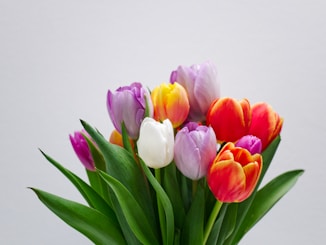

Growing up in the Catholic Church, I internalized its messages about abstinence hard. This led to intense feelings of guilt, anxiety, and shame that made everything from dating to gynecologist visits fraught with emotional peril and involuntary physical reactions. For a long time, I thought my Catholic schoolmates and I were the only ones who suffered through these kinds of side effects of abstinence-only education.
I could not have been more wrong.
Writer Linda Kay Klein grew up in an evangelical church, where purity culture ran rampant and a woman’s sexual “purity” was valued above all else. This, as well as my experiences with Catholicism, is part of larger cultural messaging about women’s worth, but it’s taken to an entirely different level in a religious context. Failing to maintain your sexual “purity” doesn’t just make you a bad person; it means you’re going to hell, and you might take others with you.
This “purity” messaging was particularly strong for a generation of white evangelical women who came of age in the 1990s, and Klein spent a full decade interviewing women (and one trans man) of this demographic to talk to them, honestly and openly, about their experiences with purity culture and their own sexuality. The results are chronicled in a new book titled Pure: Inside the Evangelical Movement That Shamed a Generation of Young Women and How I Broke Free. Klein is careful to always respect her subjects’ intentions and how much they wish to have revealed about themselves–using pseudonyms, for example, for most subjects, and including footnotes with additional information at her subjects’ request. She has also done extensive research about the scope and effects of purity culture, with a lengthy bibliography at the end of the book.
It’s clear Klein cares about ensuring the stories she tells are accurate, truthful, and not sensationalized, and she succeeds at that goal. The book allows its topic to be messy and complicated; it spotlights the limitations of both church and secular teachings and lets its characters exist in grey spaces, acknowledging complex and sometimes conflicting views about evangelicalism. Klein brings an array of voices into the conversation: single women, married women, queer women, women who are leaders of various churches, women who have left the church entirely, women with children, women without. It’s a kind of Vagina Monologues for white American evangelical women.
Parts of this book hit me like a ton of bricks. When Klein describes her “freakouts” (what I might refer to as panic attacks) when trying to have sex in her twenties or getting a pregnancy test before an X-ray despite technically being a virgin, she could have been writing scenes from my own past. Other aspects of evangelical life–paranoia about constantly being watched, or the idea of a “half-kiss”–were totally foreign and bizarre to me. Then again, aspects of my Catholic upbringing probably look completely bizarre to outsiders as well.
The damaging effects of purity culture and the associated shame on young evangelical women are wide-reaching and lifelong, and it’s high time someone brought these stories to light. Linda Kay Klein is the perfect woman for the job, with her personal experience with the subject matter, willingness to critically examine long-held beliefs, and deep empathy for her interview subjects. Every woman–in fact, every person, religious or not–would do well to read this heartbreaking but hopeful book.
Linda Kay Klein will be in Chicago, IL on:
Friday, November 9, 7:00 PM
Women & Children First Bookstore 5233 N. Clark Street, Chicago, IL 60640
*Reading/Q&A/Signing
Please visit the Women and Children First website for more information.
Photos courtesy of Simon & Schuster, Inc.




Be the first to comment